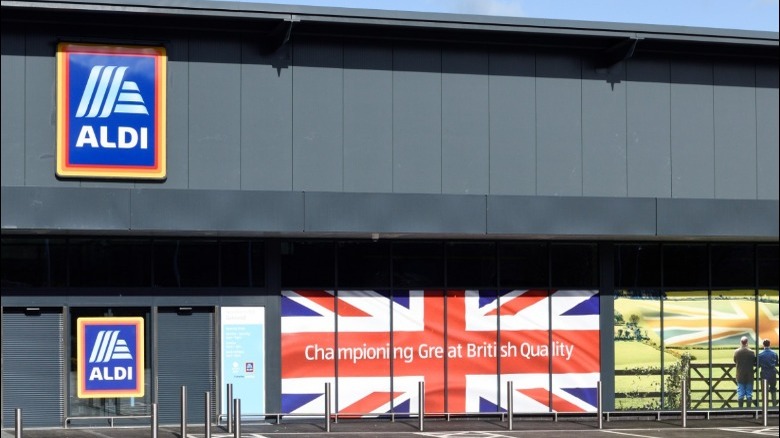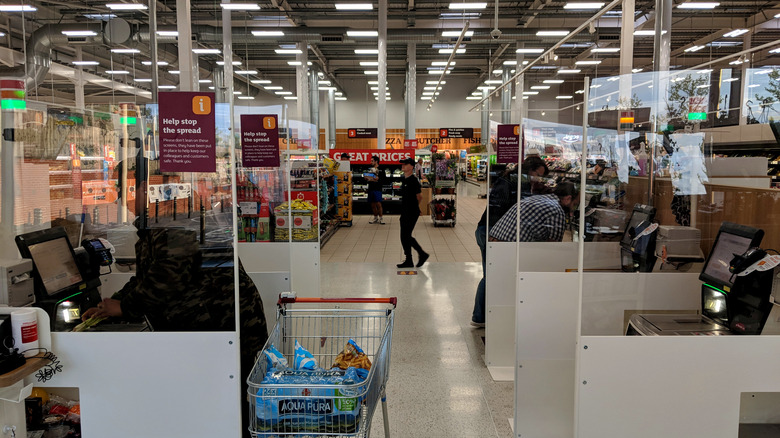Here's How Aldi UK Is Responding To The Russian Invasion
With Russia's recent invasion of Ukraine, different food and grocery chains are speaking up to make their opinions heard on this matter. Whether it's McDonald's costly decision to leave Russia or all the liquor stores that are saying goodbye to Russian products, business figures big and small are no longer willing to do business with the country or offer products associated with it. Now, Aldi U.K. has also made its position known. As reported by Wales Online, Aldi has joined British grocery chains Asda and Sainsbury's in halting the sale of Russian-made products.
The chain explained, "We stand together with Aldi colleagues across the world and will be making a donation to the Red Cross Ukraine Crisis Appeal." The organization confirmed that it would be donating approximately $5.4 million to the Red Cross to "ensure help reaches those that need it most." In addition, Aldi has said it will stop selling Russian vodka and has removed close to 100 products "with Russian connections."
UK markets have taken action
Some British supermarkets, including Aldi, have opted to pull all Russian products with Russian ties while others, such as Tesco, have chosen to sell those items already purchased and simply not buy any additional products with a Russian connection, according to the Liverpool Echo. The point of these boycotts and other actions is to push Russian President Vladimir Putin to cease the attacks on Ukraine.
Only time will tell what the total effects of these efforts will be. But as a point of clarification, the anti-Russia stance can also have unintended effects. Brands are making it known that a Russian name does not always indicate a direct and current connection with Russia. The makers of Stoli vodka have launched a public rebrand, noting that its founder is the exiled Russian-born billionaire Yuri Shefler and that its manufacturing roots are in Latvia, as shared by NPR. The news site MyLondon also reports that the false perception of a Moldavian restaurant in London being Russian-owned led to a slew of "fake one-star reviews."

